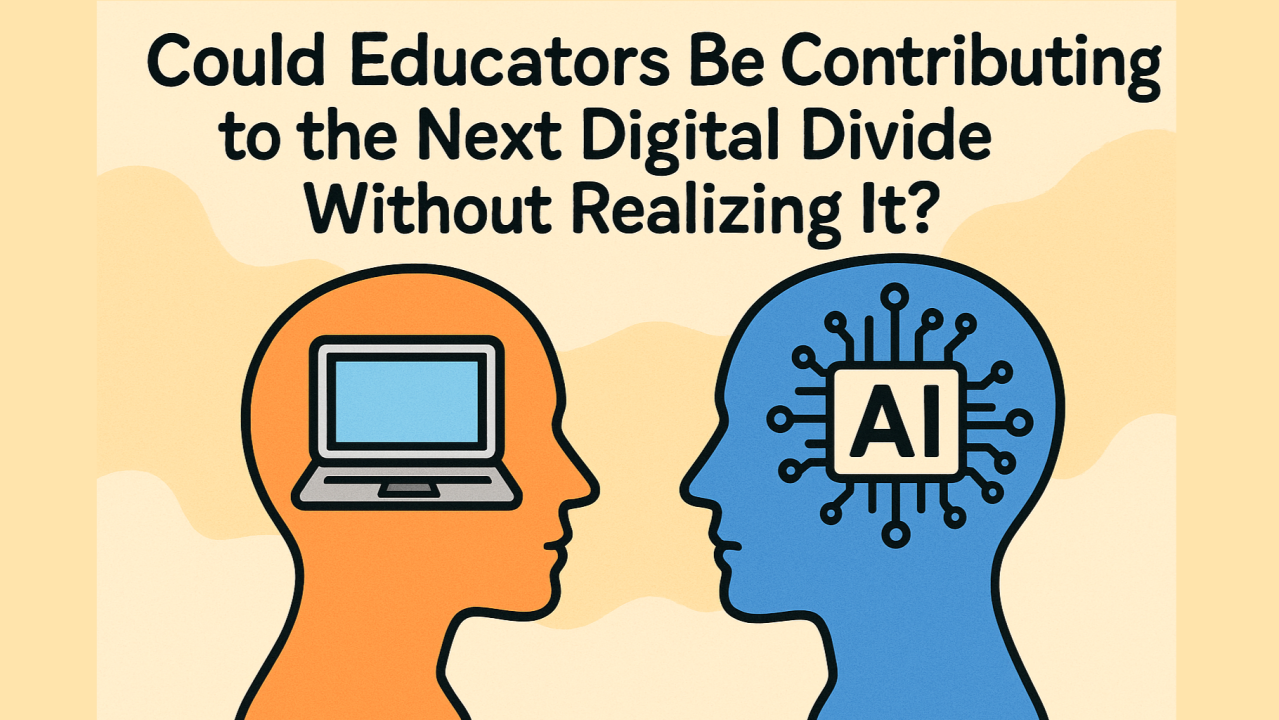
Could Educators Be Contributing to the Next Digital Divide Without Realizing It?
The digital divide made headlines years ago when access to technology — like computers and the Internet — was unequal across different populations.
This gap was widely seen as a barrier to opportunity, as access to digital tools often determines one’s ability to succeed in education, employment, healthcare, and civic life. At the time, the divide was largely about resources and funding, since hardware and connectivity were expensive to purchase, distribute, and maintain.
While this issue still exists in many parts of the world, including in high-income countries, significant progress has been made over the past two decades.
But now, a new kind of digital divide is emerging. And educators may be contributing to it without even realizing.
This time, the divide is around Artificial Intelligence.
AI has already demonstrated its powerful impact on everyday life and work. Even if development were to stop today — an unlikely scenario — its current capabilities are already transforming the world.
Educators around the globe are grappling with how AI is disrupting the classroom, especially with widespread concerns about academic dishonesty. Some are choosing to ban AI, ignore it, or strictly police its use.
But these approaches are unsustainable. Worse yet, they risk widening a new digital divide —between students who are prepared for the future and those who are not.
Being properly educated today means more than just mastering traditional subjects. It requires learning methods that prevent students from offloading all their thinking to AI — so they still develop essential knowledge and skills. At the same time, students must be taught how to use AI effectively to enhance their success in both work and life.
This balance is possible, but only if we rethink how education is delivered, measured, assessed, and credentialed.
This may sound challenging, but most educators have control of their curricula and can begin implementing incremental changes today — it may be even easier than you may think. (For ideas, check out my other newsletter articles)
Receive this newsletter by email —
I'm Mathew Georghiou and I write about how games are transforming education and learning. I also share my experience as an entrepreneur inventing products and designing educational resources used by millions around the world. More about me at Georghiou.com